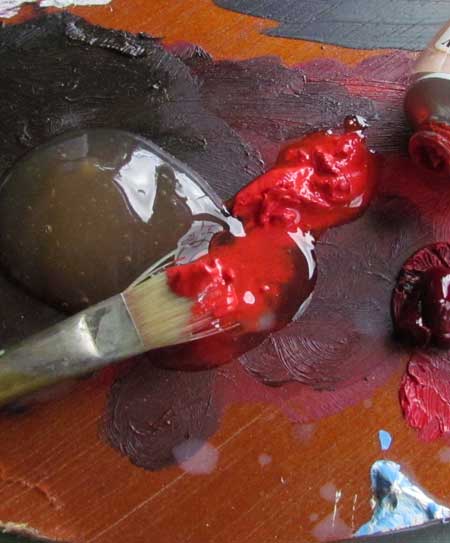Solvents for Oil Paint

As an oil-based paint, it will not mix with water and so needs certain solvents to thin the paint and clean brushes. Distilled Turpentine, derived from pine resin is what should be used to thin your paint. It should not be confused with the cheaper, petroleum-based Turpentine substitute which will not bond properly with the paint and will lessen the life of your artwork.
Turpentine is really the only solvent needed when starting out with oil. White Spirit is a good brush cleaner although I find that it leaves brushes ‘sticky’ when used regularly. Many artists also use it as a thinner for their paint because it does not have such a strong odour as Turpentine but, because it evaporates away from the paint, it does not form a bond with the paint which may leave it unstable over a period of time.
For glazing, Linseed Oil, Cold-Pressed Linseed Oil and Stand Oil will increase the flow and translucency of the colour and extend the drying time whereas Poppy Oil will increase the flow, gloss and transparency whilst speeding up the drying time. Many manufacturers also make their own versions of Glazing Mediums and Artists’ Painting Mediums which are varying combinations of oils, turpentine, cobalt driers and resins. Each will have subtly different effects on the oil so the artist needs to experiment to see which suits their own style and techniques best. One of the best for dramatically speeding up the drying times is Winsor and Newton’s Liquin.
